News
Coca-Cola introduces recyclable paperboard rings on its multi-packs
31 Aug 2020As a result of its effort to remove all unnecessary hard to recycle plastic from its portfolio in Western Europe, Coca-Cola is introducing a paperboard packaging alternative called CanCollar in Spain.
The sustainably-sourced paperboard packaging that is Programme for the Endorsement of Forest Certification-certified contains no glue or adhesives and will debut in the Balearic Islands this November.

Joe Franses, the vice president of sustainability with Coca-Cola European Partners, the soda giant’s bottling partner said, “By the end of 2020, we will have removed more than 4,000 tons of hard-to-recycle plastic from our secondary packaging in Western Europe.” Coca-Cola European Partners is working in partnership with the beverage manufacturer on this initiative and invested €2.6 million into its Barcelona plant to install the requisite machinery to enable the packaging of cans with this new technology.
Coca-Cola has committed to omitting 11,000 tons of virgin plastic per year from its portfolio in the region. This CanCollar solution will replace the current Hi-cone packaging and save more than 18 tons of plastic annually, according to the Atlanta-based corporation.
Sustainable packaging has become a focus for many companies globally as consumers search for more environmentally-minded corporations to support with their wallets. In response, major food companies, including Nestlé, PepsiCo, Unilever, Mars, Coca-Cola, Mondelez and Danone have committed to reimagining their packaging to be more sustainable. Although the promises are inked on paper, many corporations have found it difficult to devise sustainable solutions that are able to withstand temperature shifts and transportation to keep food fresh. One of the few avenues that companies have found ready success is in bottle packaging.
Danish brewing company Carlsberg scrapped its plastic rings in favor of binding its cans together using a glue. The company said that this will reduce the amount of plastic used by 76%. Since then, the company has invested in prototype technology that would allow the brewery to bottle its beer in a sustainable, bio-based, fully recyclable bottle.
Nestlé too has put its money where its mouth is when it comes to beverages when it announced early this year that it planned to spend 2 billion Swiss francs ($2.1 billion) to shift away from virgin plastic to food-grade recycled plastic alternatives. Additionally, the Swiss conglomerate announced it would start a 250 million Swiss francs ($260 million) venture fund to invest in start-ups focusing on sustainable packaging.
In July, Frugalpac, a British sustainable packaging company launched the first wine bottle made from 94% recycled paperboard. The Italian vineyard Cantina Goccia will be the first company to use this packaging solution.
Switching to a more sustainable form of packaging is not only a way for companies to acknowledge their consumers – nearly half of which in the U.S. are likely to alter their shopping choices to buy what meets environmental standards, according to a 2018 survey from Nielsen – but it is also beneficial for corporations’ bottom lines. Package waste represents an annual loss of $80 billion to $120 billion for the global economy, according to the World Economic Forum. Cleaning up packaging portfolios will represent a large savings for these companies that are scrambling as the pandemic continues to upend the food and beverage industry.
Related news
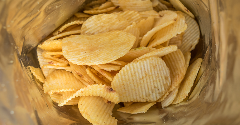
Ultra-processed food intake in South Africa at concerning levels, study suggests
19 Mar 2024
As South Africa considers introducing front-of-pack warning labels and strict marketing limits for unhealthy foods, research has found that low-income South Africans get around half of their calories from ultra-processed foods (UPFs) – “a cause for con...
Read more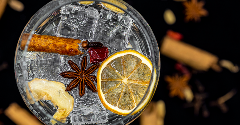
As Gen Z shies away from alcoholic drinks exotic flavours are the big draw
11 Mar 2024
With Gen Z drinkers proving to be the driving force behind the sober curious movement, we spoke to Bax Botanics, an artisanal distiller of zero-alcohol botanical beverages, to find out what appeals to its younger drinkers.
Read more
Young consumers' demand for functional ingredients is driving change in the beverage industry
11 Mar 2024
Younger consumers are blurring the boundaries between food and beverage – demanding a wide variety of functional ingredients, but in a drinkable format that compliments their on-the-go lifestyles.
Read more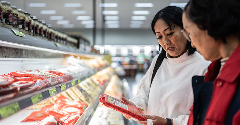
Brazilian manufacturers must comply with warning label regulation, says court
7 Mar 2024
The Federal Court of São Paulo has ruled that Brazilian manufacturers must comply with front-of-pack labelling regulation that requires unhealthy products to feature warning labels, scrapping a last-minute one-year extension.
Read more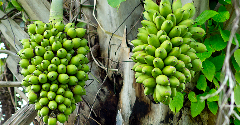
Macauba oil emerges as potential rainforest-friendly palm oil alternative
1 Mar 2024
Producers and researchers consider the rainforest-friendly credentials of Macauba palm oil and whether its sustainability credentials offer an opportunity to replace palm oil.
Read more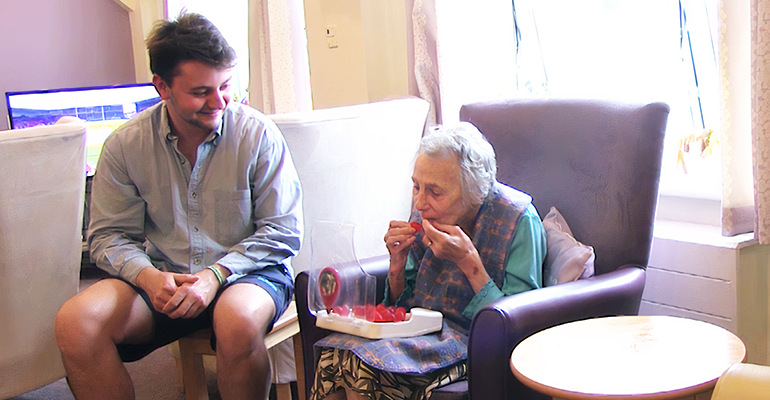
Jelly Drops made of 95% water tackle dehydration among seniors
27 Feb 2024
Specialised nutrition startup Jelly Drops makes small jelly drops that contain 95% water and added electrolytes and vitamins to combat dehydration among elderly people and those with dementia who often forget to drink– a common yet previously underserv...
Read more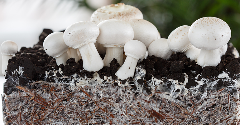
Mycelium to move beyond plant-based applications
12 Feb 2024
As mycelium development kicks off in 2024 with new multi-million investment, product development, and retail expansion, manufacturers lean into launches.
Read more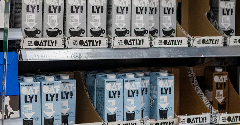
UK High Court allows Oatly to use 'milk' on packaging
17 Jan 2024
Oatly has scored a landmark victory in the use of the word milk after the UK High Court ruled against the country’s dairy industry and permitted the term to be used on packaging.
Read more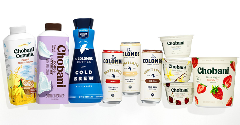
Chobani expands drink presence with La Colombe acquisition
16 Jan 2024
Greek yoghurt giant Chobani has purchased US coffee brand La Colombe Coffee Roasters for $900 million, furthering its expansion into beverage categories like coffee, oat milk, creamer and ready-to-drink offerings.
Read more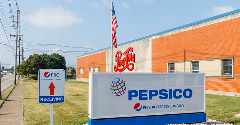
PepsiCo to reshape convenient foods portfolio with less sodium and more plant proteins
10 Jan 2024
PepsiCo has revealed details of two nutrition goals that look to reduce sodium and boost consumption of legumes, whole grains, and plant-based proteins as part of the multinational’s expanded convenient foods portfolio.
Read more